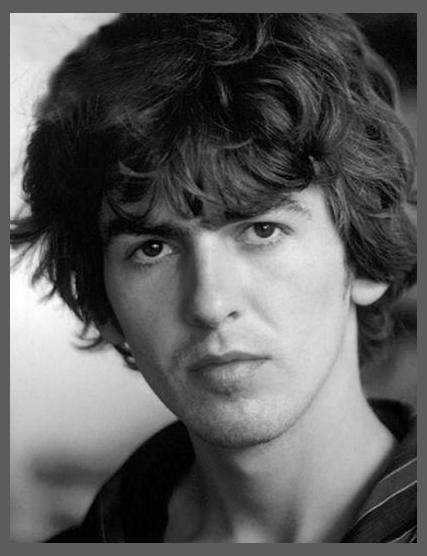 George Harrison
George Harrison
George Harrison's Musical Odyssey and the Iconic Melody of "My Sweet Lord"
In the annals of rock music, George Harrison stands as a visionary artist who transcended the boundaries of the Beatles and left an indelible mark on the musical landscape. His unique blend of Eastern mysticism, introspective lyrics, and melodic brilliance resonated with generations of listeners.
Early Life and the Beatles Era
Born in Liverpool, England, in 1943, Harrison's passion for music ignited at a young age. He joined the Beatles in 1960, alongside John Lennon, Paul McCartney, and Ringo Starr. As the "quiet Beatle," Harrison initially played a supporting role, but his songwriting skills gradually blossomed.
Over the course of the Beatles' illustrious career, Harrison penned a string of memorable songs, including "Something," "While My Guitar Gently Weeps," and "Here Comes the Sun." His introspective lyrics and spiritual undertones set him apart from his bandmates and hinted at his evolving artistic vision.
Solo Career and Eastern Influences
Following the Beatles' disbandment in 1970, Harrison embarked on a successful solo career. He delved deeper into Eastern mysticism and incorporated elements of Indian music into his compositions. His 1970 triple album, "All Things Must Pass," showcased his newfound freedom and featured the iconic track "My Sweet Lord."
Challenges and Controversies
The release of "My Sweet Lord" was marred by controversy. Harrison was accused of plagiarizing the melody from the Chiffons' 1963 hit "He's So Fine." Despite Harrison's claim that the similarity was unintentional, he was found guilty of infringement and ordered to pay damages.
The copyright lawsuit cast a shadow over Harrison's career and raised questions about his creative integrity. However, it also served as a catalyst for his spiritual growth and artistic maturation.
Later Career and Legacy
In the years following "My Sweet Lord," Harrison continued to explore his musical interests. He collaborated with a diverse array of artists, including Eric Clapton, Bob Dylan, and Tom Petty. His albums, such as "Living in the Material World" and "Cloud Nine," were critically acclaimed for their introspective lyrics and musical diversity.
Harrison's legacy extends far beyond his music. He was a passionate advocate for environmentalism and humanitarian causes. His Concert for Bangladesh in 1971 raised millions of dollars for refugees in the war-torn country.
Discography
Solo Albums:
* All Things Must Pass (1970)
* Living in the Material World (1973)
* Dark Horse (1974)
* Extra Texture (Read All About It) (1975)
* Thirty Three & 1/3 (1976)
* George Harrison (1979)
* Somewhere in England (1981)
* Gone Troppo (1982)
* Cloud Nine (1987)
* Brainwashed (2002)
Collaborations:
* The Concert for Bangladesh (with Ravi Shankar and friends, 1971)
* Wonderwall Music (with Ravi Shankar, 1974)
* No One's Gonna Change Our World (with Ringo Starr, 1981)
Members
* George Harrison - lead guitar, vocals
* Phil Spector - producer (All Things Must Pass)
* Billy Preston - keyboards
* Klaus Voormann - bass
* Ringo Starr - drums (occasionally)
In the annals of rock music, George Harrison stands as a visionary artist who transcended the boundaries of the Beatles and left an indelible mark on the musical landscape. His unique blend of Eastern mysticism, introspective lyrics, and melodic brilliance resonated with generations of listeners.
Early Life and the Beatles Era
Born in Liverpool, England, in 1943, Harrison's passion for music ignited at a young age. He joined the Beatles in 1960, alongside John Lennon, Paul McCartney, and Ringo Starr. As the "quiet Beatle," Harrison initially played a supporting role, but his songwriting skills gradually blossomed.
Over the course of the Beatles' illustrious career, Harrison penned a string of memorable songs, including "Something," "While My Guitar Gently Weeps," and "Here Comes the Sun." His introspective lyrics and spiritual undertones set him apart from his bandmates and hinted at his evolving artistic vision.
Solo Career and Eastern Influences
Following the Beatles' disbandment in 1970, Harrison embarked on a successful solo career. He delved deeper into Eastern mysticism and incorporated elements of Indian music into his compositions. His 1970 triple album, "All Things Must Pass," showcased his newfound freedom and featured the iconic track "My Sweet Lord."
Challenges and Controversies
The release of "My Sweet Lord" was marred by controversy. Harrison was accused of plagiarizing the melody from the Chiffons' 1963 hit "He's So Fine." Despite Harrison's claim that the similarity was unintentional, he was found guilty of infringement and ordered to pay damages.
The copyright lawsuit cast a shadow over Harrison's career and raised questions about his creative integrity. However, it also served as a catalyst for his spiritual growth and artistic maturation.
Later Career and Legacy
In the years following "My Sweet Lord," Harrison continued to explore his musical interests. He collaborated with a diverse array of artists, including Eric Clapton, Bob Dylan, and Tom Petty. His albums, such as "Living in the Material World" and "Cloud Nine," were critically acclaimed for their introspective lyrics and musical diversity.
Harrison's legacy extends far beyond his music. He was a passionate advocate for environmentalism and humanitarian causes. His Concert for Bangladesh in 1971 raised millions of dollars for refugees in the war-torn country.
Discography
Solo Albums:
* All Things Must Pass (1970)
* Living in the Material World (1973)
* Dark Horse (1974)
* Extra Texture (Read All About It) (1975)
* Thirty Three & 1/3 (1976)
* George Harrison (1979)
* Somewhere in England (1981)
* Gone Troppo (1982)
* Cloud Nine (1987)
* Brainwashed (2002)
Collaborations:
* The Concert for Bangladesh (with Ravi Shankar and friends, 1971)
* Wonderwall Music (with Ravi Shankar, 1974)
* No One's Gonna Change Our World (with Ringo Starr, 1981)
Members
* George Harrison - lead guitar, vocals
* Phil Spector - producer (All Things Must Pass)
* Billy Preston - keyboards
* Klaus Voormann - bass
* Ringo Starr - drums (occasionally)